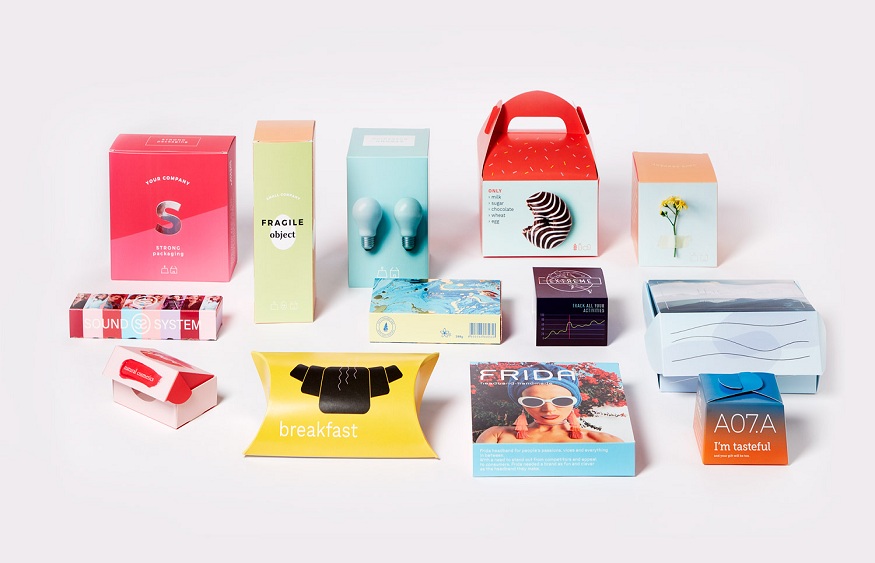Who Has Specialised Labelling For Food & Cosmetic Packaging?

Packaging and labelling are crucial in the constantly changing consumer products industry for luring customers and guaranteeing product safety. The initiative places a lot of emphasis on the Packaging and labelling of food products and cosmetics . A product must be wrapped, and a narrative, essential facts, and legal requirements must be communicated. The significance of Packaging and labelling for food and cosmetic items is examined in this article, along with the businesses specialising in this area and the subtleties of decorative labels.
The Value of Labelling and Packaging:
Appeal to Beauty
One of the first things that catch our eye when we peruse the cosmetics aisles of a grocery store or explore online is Packaging. Consumer perception is significantly influenced by how a product is presented. A product can stand out and elicit an emotional response from consumers when packaged attractively and thoughtfully. It is especially crucial in the cosmetics sector, where aesthetics and visual appeal are essential.
Knowledge and Compliance
The main methods for providing consumers with crucial information are Packaging and labelling. It pertains to food goods and includes nutritional data, a list of components, allergen disclosures, and expiration dates. Ingredient information, instructions for Use, and potential allergies are all listed on cosmetic labels. Both consumer safety and legal compliance depend on ensuring this information is correct and by local laws.
Brand Identity
Key elements of brand identification include Packaging and labelling. They display the company’s logo, colours, and other distinguishing features to make it easier for customers to recognize and relate to a particular product or brand. Packaging and labelling consistency help consumers identify and stick with a brand.
Protection of Products
Beyond being aesthetically pleasing and providing information, Packaging protects the product, which is its primary purpose. Food is protected from impurities, dampness, and other environmental elements that could jeopardise its quality and safety. Packaging protects cosmetics from deterioration and contamination.
Companies that package and label food
Numerous specialised businesses are available on the market to suit the intricate needs of food packaging and labelling. Design, printing, and compliance consulting are just a few services these businesses provide. The following are some significant features of food packaging and labeling companies:
Design for Customised Packaging
For businesses that package food, creating custom packaging is essential. They work with designers to provide unique packaging options that complement a brand’s personality and product requirements. These designs must balance form and function to safeguard products and offer an outstanding customer experience.
Printing Proficiency
High-quality printing is essential for creating labels that are clear and precise. Companies that package and label food make use of contemporary printing technologies to produce labels that are both aesthetically pleasing and robust. To have the appropriate aesthetic effects, they use various printing techniques, such as offset printing, digital printing, and flexography.
Environmentally friendly packaging options
In recent years, interest has risen as the importance of sustainability in packaging has grown. Food packaging and labelling businesses progressively provide eco-friendly alternatives to fulfil the demands of consumers who care about the environment. These solutions include techniques to cut down on packaging waste and the usage of biodegradable materials.
Cost-Efficiency Techniques
For cost management, production efficiency in packaging is essential. Packaging businesses carefully refine their production methods to offer customers cost-effective solutions without sacrificing quality or regulatory compliance.
compliance with legal requirements
It can be challenging for food manufacturers that must adhere to strict labelling and safety rules to navigate the complex regulatory environment. Many food packaging businesses employ professionals knowledgeable about the latest laws and regulations. They are essential in helping their clients ensure these requirements are followed.
An Examination of Cosmetic Labels
Cosmetic labelling is a unique subsection of the packaging and labelling sector, distinguished by its standards and factors:
Lists of Ingredients
Labels for cosmetic items must prominently list the components. Customers who have allergies or substance sensitivities must know this information. Inaccurate or insufficient ingredient lists can put customers at risk for health problems and put firms in legal hot water.
Instructions for Use:
On the labels of cosmetics, usage instructions are crucial. They instruct customers on safe and effective product application and Use. It is especially vital for goods like cosmetics and skincare products.
Allergen Warnings
Additionally, warnings concerning possible allergens may be included on cosmetic labels. Examples include common allergens like nuts or perfumes. Thanks to this, customers may choose items wisely and avoid those that cause allergic responses.
FDA guidelines
The Food and Drug Administration (FDA) has regulatory authority over cosmetic labelling in the US. Cosmetic producers must ensure that all of the data on their labels complies with FDA guidelines. It covers the truthful disclosure of ingredients and the support for any assertions made.
Symbolism and Visual Appeal
Cosmetics rely on their Packaging and labelling to communicate their brand identity and aesthetic attraction, much like food goods do. High-end cosmetic companies frequently invest in Elegant Packaging and labelling to further their image of luxury.
Branding and aesthetically pleasing design
Packaging and labelling effectively communicate brand identity and grab consumers’ attention in the food and cosmetics industries. To emphasise their premium image, luxury cosmetic manufacturers, in particular, invest heavily in designing attractive Packaging and labelling.
Customization and adherence
Companies that provide Packaging and labelling can help firms balance functionality and aesthetics by providing specialised solutions. They are also experts at navigating the maze of rules, ensuring
Packaging and labelling are essential to a successful product strategy in the food and cosmetics industries. Beyond their purely functional purposes, they play a variety of responsibilities, from luring clients with their attractive appearance to guaranteeing consumer safety through accurate information and conformity to legal requirements.
Conclusion
Food manufacturers rely on the knowledge of packaging and labelling firms to help them navigate the complexities of packaging design, printing, and regulatory compliance. These specialised businesses aid in developing Packaging that improves brand identification and appeals while protecting items.
Regarding cosmetic labels, accuracy, and conformance to FDA standards are crucial factors. These labels give consumers vital information about product contents, usage guidelines, and potential allergens, in addition to enhancing a brand’s image and identity.





